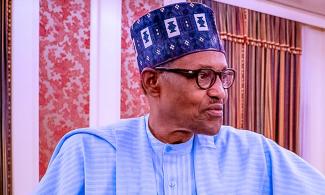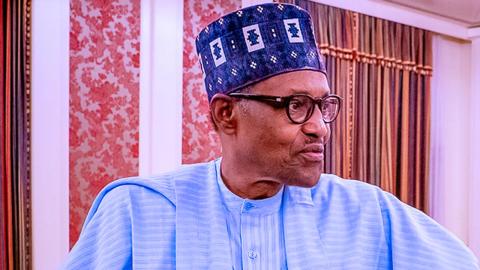
The research organisation asserted that the two different recessions experienced by Nigeria under Buhari's government could be related to the late appointment of his ministers.
A report by SBM Intelligence has noted that President Muhammadu Buhari’s delay in setting up his cabinet when he assumed office in 2015 crippled Nigeria’s economic potential.
The report titled 'Nigeria's history of inflation: a history of the destruction of value', released in June 2022 highlighted historical antecedents of major economic incidents in the country.

The research organisation asserted that the two different recessions experienced by Nigeria under Buhari's government could be related to the late appointment of his ministers.
In 2015, it took Buhari 166 days to appoint ministers after he took over from the former President, Goodluck Jonathan.
The report reads in part: "Mr Buhari returned to power on the back of a high amount of hope and goodwill. However, a delay in constituting the cabinet saw uncertainty creep into the economy.
“Two recessions in quick succession hampered economic growth. In response, the Buhari government has expanded government borrowing to the pre-debt forgiveness levels, ignoring the important safeguards put in place by the Obasanjo government in the Fiscal Responsibility Act.
“As of 2021, debt servicing consumed more than 90% of federal government revenues. In addition, policies such as the border closure of 2019, high import tariffs and restricting foreign exchange for key import items have seen supply stifled while demand continues to increase.
"A third issue is the retention of the petrol subsidy which is now ten times what it was annually compared to when Mr Buhari took over. Finally, the exchange rate regime has seen the Central Bank desperately trying to control the exchange rate officially including using a desperate measure like the Open Market Operation (OMO), while only succeeding at fostering a parallel market where the dollar has traded at a rate between a 30% and 70% difference at different times in the last seven years.
"All of these have ensured that inflation remains firmly in the double-digit realm under the Buhari administration, while purchasing power has more than halved, wiping out large sections of the middle class. These policies have also seen to it that most of the institutional safeguards put in place after the return to democracy to foster responsible fiscal and monetary policy as well as put inflation in check have been disregarded and rendered redundant. In addition, there have been no new institutional frameworks or improvements to the existing ones under the Buhari administration.”
SBM Intelligence is an Africa-focused geopolitical research and strategic communications consulting firm focused on addressing the critical need for political, social, economic and market data, and big data analytics.